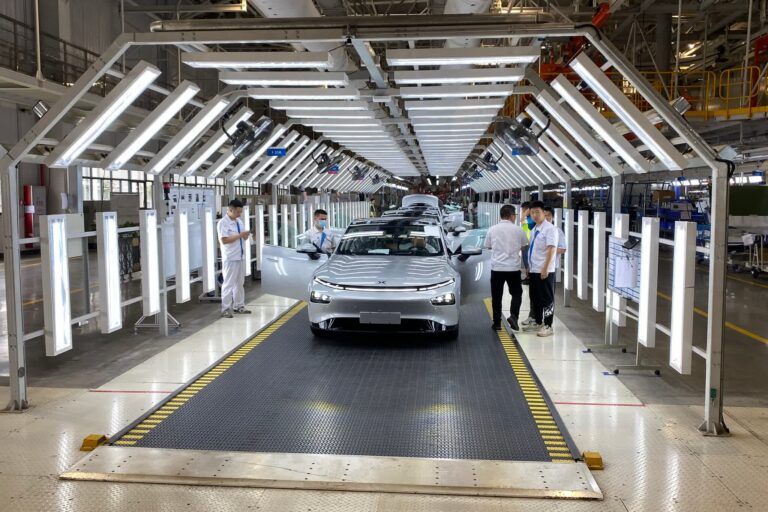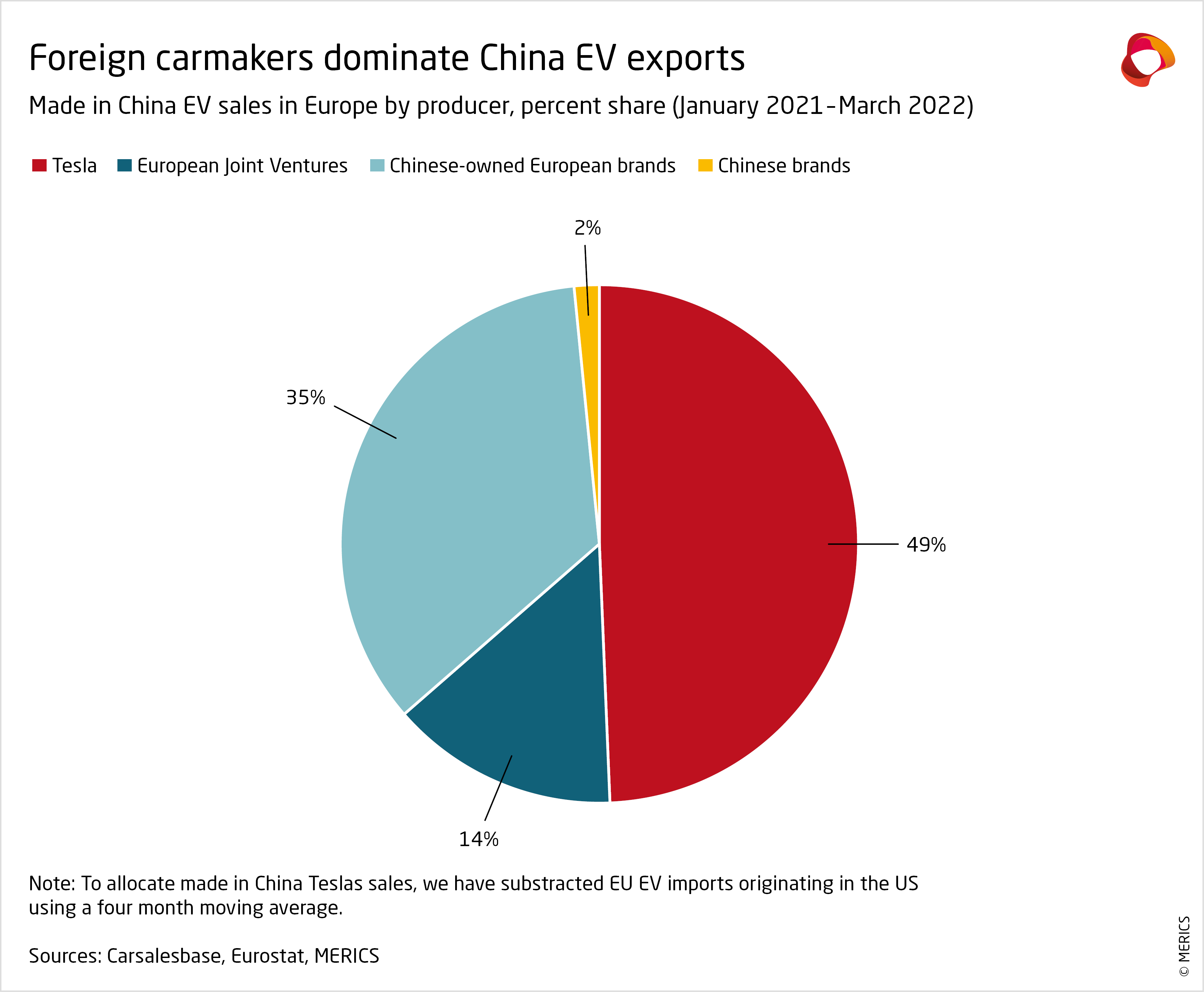
[ad_1]
Why it matters: Recently, there has been significant news about China’s Electric Vehicle (EV) industry, primarily concerning its statistics. We predict this trend may lead to greater global trade issues. China has become a net exporter of vehicles for the first time in its history. They are selling a lot of EVs to the world, and that will reverberate throughout the global economy.
Eurostat, the EU’s statistical agency, released the latest data on car trade. China now accounts for nearly 50% of Europe’s EV imports. To put this in context, Europeans purchased about 9 million cars in 2022, of which 12%, or 1 million cars, were EVs. Of these, 500,000 originated from China.
Editor’s Note:
Guest author Jonathan Goldberg is the founder of D2D Advisory, a multi-functional consulting firm. Jonathan has developed growth strategies and alliances for companies in the mobile, networking, gaming, and software industries.
Further analysis reveals that about half of these were China-made Teslas, with the rest primarily being other Chinese brands. We have derived this data from Eurostat, DW, an insightful report from EU-China think tank Merics, and the Financial Times.
This development has led to a substantial shift in trade between Europe and China. China represents an important market for European car manufacturers. For years, they have engaged in joint ventures in China to produce low and mid-priced vehicles, meaning most of these exports were luxury cars. The trade balance was previously around $3 billion to $5 billion in Europe’s favor. However, over the past two years, with a significant acceleration in the past 12 months, the balance has shifted. It still favors Europe, but it has fallen to approximately $2 billion. Almost all of this shift is attributed to EVs.
China is clearly on the rise, not just in EV production, but as a major player on the global export stage. We warned about this in January, and evidence of this rise is becoming increasingly prominent in trade data. From a broader perspective, economist Brad Setser recently tweeted data showing the surge in China’s overall automotive exports in the past year. China is now a net exporter of cars probably for the first time in its history, and most of this growth is attributed to electric cars.
This transition carries important implications. The most obvious is the potential escalation of trade tensions. The US and China have been in a trade war for several years, and we believe this latest data significantly raises the probability of the EU getting involved.
The pace at which China has emerged as a major auto exporter – and now a major net exporter of autos – is stunning.
1/3 pic.twitter.com/Fk7qNapAkb
– Brad Setser (@Brad_Setser) April 25, 2023
Secondly, one of China’s major weaknesses in its ascent to manufacturing prominence this century has been its companies’ inability to establish brands. Many consumers purchase numerous Chinese-made products, yet we can name fewer than a dozen Chinese brands recognizable to consumers outside of China. These notable exceptions include smartphone brands like BBK’s Oppo, Vivo, One Plus, Xiaomi, and Transsion’s various brands. Brand owners can command a larger share of value, and the ability to achieve globally recognized brands represents a significant step in economic development. Chinese automakers now appear to be accomplishing this in one of the wealthiest industries.
To relate this back to semiconductors, we believe this trade data carries two important implications. First, as we have detailed extensively, EVs require a significant number of semiconductors. Except for Tesla, most of China’s EVs are fairly low-priced, but even these vehicles necessitate substantial semiconductor content. The low prices are likely to further stimulate the transition to EVs, which is generally beneficial for the semiconductor industry.
Second, from a trade perspective, one of the major concerns regarding US sanctions on China’s semiconductors has been the willingness of allied countries to participate. For US sanctions to be effective, the US government needs support from other countries, especially Japan, South Korea, and Europe – all home to significant automotive industries.
We think it’s probable that trade data like this will encourage these countries to take notice and be more accepting of US sanctions. In particular, Germany, which has seemed somewhat resistant to the US expanding trade measures against China, might reconsider its stance with the cornerstone of its industrial model potentially at risk.
[ad_2]
